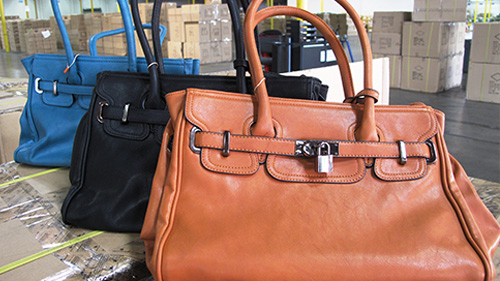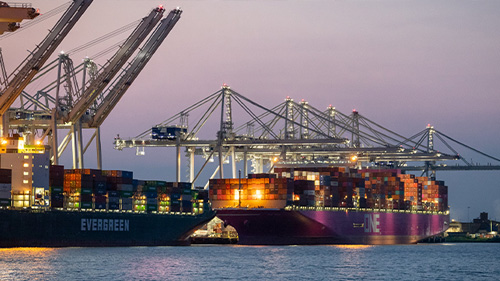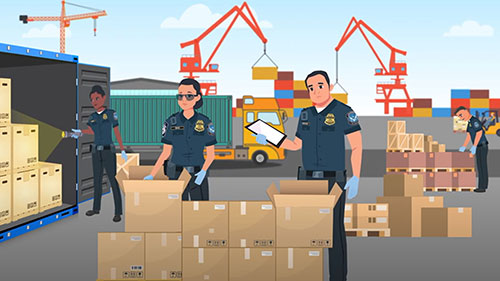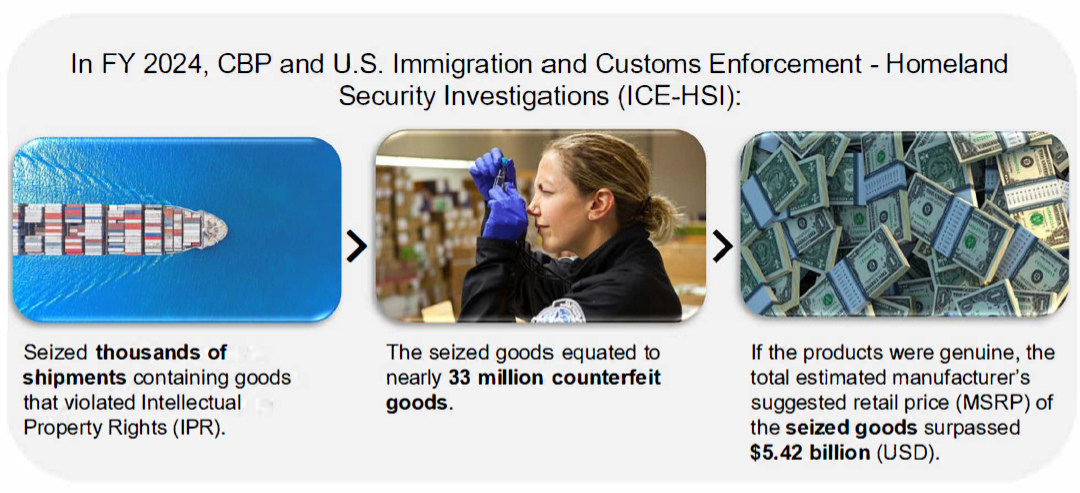The Dangers of Illicit Trade of Goods
The trade of counterfeit and pirated goods threatens America’s innovation economy, the competitiveness of our businesses, the livelihoods of U.S. workers, and, in some cases, national security and the health and safety of consumers. Protect yourself and your family by avoiding potentially dangerous counterfeit items.
Trade of illegitimate goods is associated with smuggling and other criminal activities, and often funds criminal enterprises. CBP and partner government agencies work side-by-side to protect the intellectual property rights of American businesses. Safeguarding them from unfair competition, and loss of consumer trust, while upholding American innovation and ingenuity.
Additional Information
CBP targets and seizes imports of counterfeit and pirated goods entering the United States. Additionally, CBP enforces exclusion orders that the U.S. International Trade Commission issues under Section 337 of the Tariff Act of 1930 on patent infringing and other IPR violative goods.
Top Seized Commodity
Handbags/Wallets topped the list for number of goods seized with 5,132,402 items, representing 15.8% of all IPR seizures in FY 2024. Jewelry was among the top products seized in terms of total MSRP value with seizures valued at over $1.6 billion (USD), representing 30% of the total value of goods seized in FY 2023. Watches came in second with an estimated value of over $1.4 billion (USD), corresponding to approximately 27% of the total value of goods seized due to intellectual property rights violations.
In FY 2024, CBP processed over 1.3 billion de minimis shipments (shipments valued at under $800). CBP has been working to improve trade risk management in the e-commerce environment by working closely with the trade community and operating two test pilot programs, the Section 321 Data Pilot and the Entry Type 86 Test. In FY 2024, CBP received 1,108.6 billion filings on de minimis shipments (160.6 million Section 321 Data Pilot filings; 948.0 million Entry Type 86 filings). The Entry Type 86 filings accounted for over 69% of all de minimis shipments. For more information about e-commerce and the related pilot programs, please visit the E-Commerce webpage.







